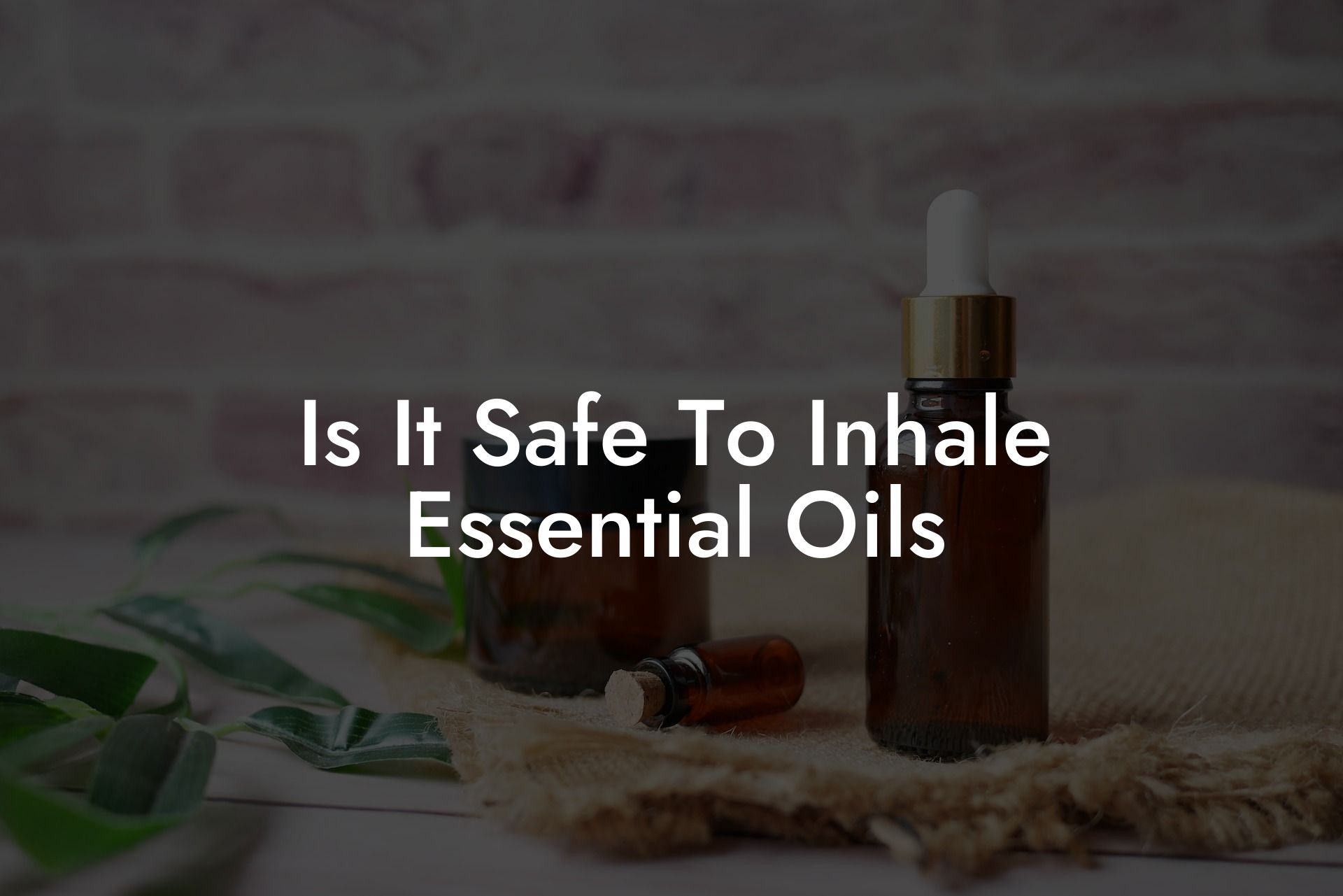Inhaling essential oils is becoming increasingly popular as people look for holistic ways to improve their well-being. Essential oils offer several therapeutic benefits, but is it safe? Join us as we dive into the safety of essential oil inhalation, the proper ways to use them, and what you need to know to enjoy their full potential.
Table of Contents
What are Essential Oils?
Essential oils are concentrated plant extracts obtained through different processes such as steam distillation or cold pressing. They capture the plant’s aroma, flavor, and natural compounds, which can offer several health benefits when used correctly. Some popular essential oils include lavender, eucalyptus, and peppermint.
How Essential Oils Work Through Inhalation
When you inhale essential oils, their aromatic molecules enter your nose and interact with the olfactory receptors, sending signals to the brain. This interaction can trigger various physiological responses, including relaxation, energy boost, and even pain relief. These effects are what make aromatherapy a popular holistic approach for stress relief and wellness improvement.
Is It Safe to Inhale Essential Oils?
Yes, it is generally safe to inhale essential oils when used properly. However, not all essential oils are suitable for inhalation. It’s essential to choose high-quality, pure oils from reputable brands like Oshu Oils to ensure safety and efficacy. Keep in mind that essential oils are potent, and precautions must be taken.
Precautions When Inhaling Essential Oils
- Always dilute: Essential oils should never be directly inhaled from the bottle. They must be diluted in a carrier oil, such as coconut or almond oil, or diffused into the air using a diffuser or humidifier to avoid potential irritation.
- Use in moderation: Prolonged and excessive inhalation of essential oils can lead to headaches, dizziness, and even respiratory issues. Limit sessions to 30 minutes and provide proper ventilation in the room.
- Avoid if allergic: If you have allergies or sensitivities to certain plants, you should avoid inhaling essential oils derived from those plants.
- Children and pregnant women: Some essential oils are not suitable for children, pregnant women or nursing mothers. Always consult a healthcare professional before using essential oils in these cases.
Is It Safe To Inhale Essential Oils Example:
Imagine you’ve had a long day at work, and you’re looking to unwind and relax at home. You decide to use your essential oil diffuser with a calming blend of lavender, chamomile, and ylang-ylang. Following the precautions mentioned, you dilute the oils with water according to the diffuser’s instructions and let the soothing aroma fill your room for 30 minutes while you read a book. As you inhale the calming scent, you begin to feel the tension melting away, and a sense of peace takes over. By using essential oils safely, you’re maximizing their therapeutic benefits for your well-being.
Now you’re well-equipped with knowledge about the safety of inhaling essential oils and how to make the most out of this therapeutic experience. Like any other natural remedy, it’s essential to use them responsibly and with care. Don’t hesitate to share this article with your friends and family to spread awareness about the safe inhalation of essential oils. Make sure to explore other comprehensive guides on Oshu Oils to expand your knowledge and check out our range of high-quality essential oils to elevate your aromatherapy journey.





















